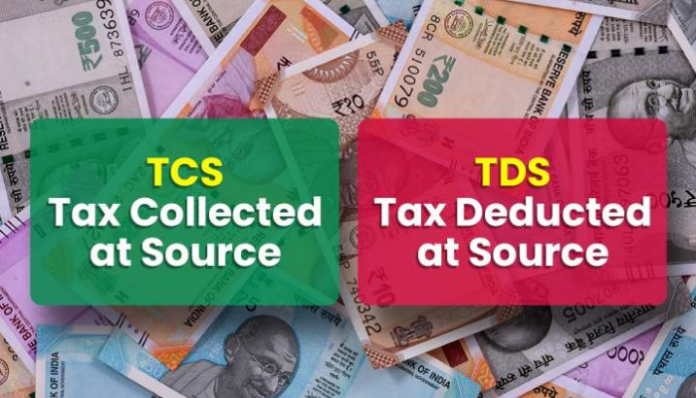TDS vs TCS: There is often confusion among taxpayers regarding TDS and TCS. These two are different methods of collecting tax. But in both the cases there is a need to file a return. If you are also confused about TDS and TCS, then here we are explaining their difference to you in detail…
New Delhi: The time to file ITR is fast approaching. Often people are often confused about TDS and TCS. Many people do not understand the difference between these two. There are two different methods of collecting this tax. TDS stands for Tax Deduction at Source while TCS stands for Tax Collection at Source. In both, the tax portion is deducted at the time of money transactions. This money is deposited with the government. But, there is a difference in the method of tax payment in both. It is not easy for a new person to understand this difference. In both these cases the return needs to be filed. Here we are telling you about them in detail.
What is TDS?
If a person has any income, then tax is deducted from that income and the remaining amount is given. In this way, the amount deducted as tax is called TDS. The government collects tax through TDS. It is deducted on different types of income sources. These include salary, interest and commission received on investment etc. The paying institution deducts a fixed amount as TDS. The government announces how much TDS will be deducted on which type of payment before every financial year. Due to tax deduction at the source of income, it is called Tax Deducted at the Source i.e. TDS. In this way the person who deducts tax is called Deductor and the person whose TDS is deducted is called Deductee.
Example of TDS
Let us understand TDS through an example. Suppose you have won a lottery of Rs 10 lakh. There is a rule to deduct 30% TDS on the entire amount won on lottery. You will get only the remaining amount after deducting 30% of Rs 10 lakh. That is, out of your lottery of Rs 10 lakh, Rs 3 lakh will be deducted as TDS. In this way, you will get seven lakh rupees for winning the lottery of ten lakh rupees. If you get professional fees from anywhere, then 10% TDS is deducted on payment of Rs 30,000 or more annually.
What is TCS?
TCS is tax collected at source. Means tax collected at source. This tax is imposed on the transaction of certain types of goods. Like Liquor, Tendu Leaf, Timber, Scrap, Minerals etc. While taking the price of the goods, tax money is also added to it and deposited with the government. The responsibility of collecting TCS from the buyer and depositing it with the government rests with the person who sells the goods. Means it is the responsibility of the seller. Due to collecting tax from the source of getting the price, it is called Tax Collected at the Source i.e. TCS. According to Section 206C (1) of the Income Tax Act, there is a rule to deduct TCS only on the sale of certain items for business purposes. This does not seem to be the case when the deal is for personal consumption.
Example of TCS
Let us try to understand TCS through an example. Suppose a person sold scrap worth one lakh rupees to a company. There is a rule of 1% TCS on scrap. One percent of one lakh rupees is 1000 rupees. In this way a total of one lakh one thousand rupees will be taken from the company. TCS of Rs 1000 collected in this way will have to be deposited with the Income Tax Department. Its rate is different on different things. For example, on tendu leaf it is the maximum of five percent. On liquor or alcohol it is 2.5 per cent.

